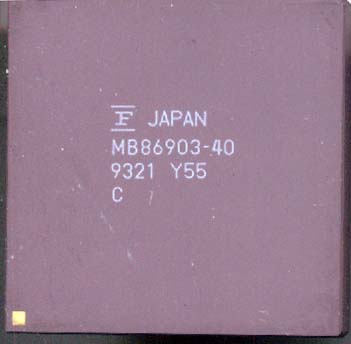

Microprocessor Museum of CPU History for Intel CPUs, AMD Processor History, Cyrix Microprocessors, Microcontrollers and more.
Total CPU's: 2342
Total Manufacturers: 32
Total EPROM's: 23
Fujitsu > FujitsuMB86903-40
|
|

|
Modified: May 25, 2005, 3:42 am
|